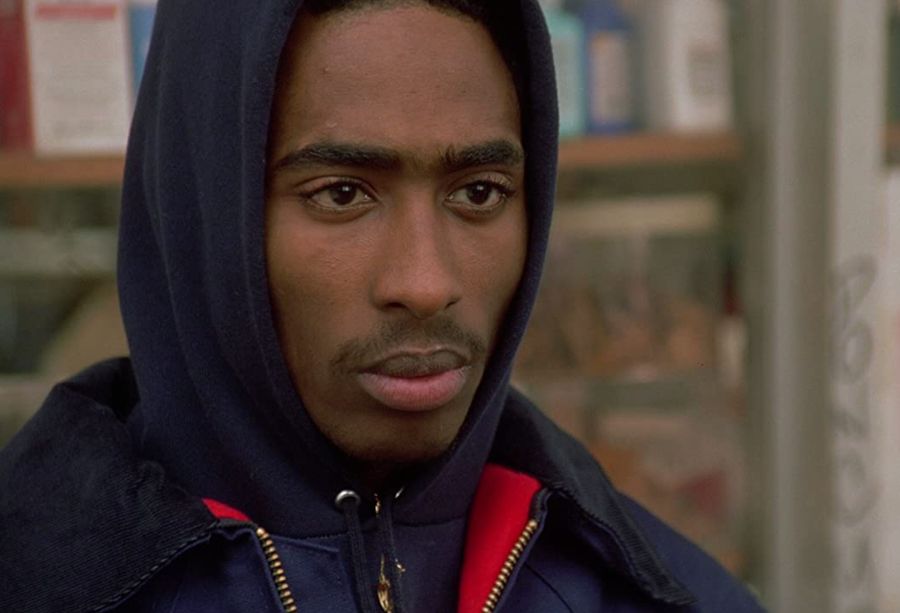Tupac Shakur’s ‘Bishop’, the antagonist of Ernest R. Dickerson’s 1992 film Juice, is an erratic live-wire, a stressful figure desperate to break free from his social restraints. In some ways, his character well reflects the real-life hip hop monolith, named after Túpac Amaru II, a revolutionary and descendant of the last Incan ruler, with the two individuals sharing a similar drive to overthrow the ‘fate’ of their lives.
Shakur’s mother explained, “I wanted him to have the name of revolutionary, indigenous people in the world. I wanted him to know he was part of a world culture and not just from a neighbourhood”. Even though Tupac’s Bishop is a highly dislikeable character, his urge to free himself from his social status feels strangely admirable.
Cutting between the frenetic highways of New York City, the film’s opening scene pumps with an energetic heartbeat to the tune of ‘Eric B. and Rakim – Know the ledge’, setting a dynamic tone to fuel the film’s underbelly. Jumping and wheezing out of bed, we are introduced to the quartet of young teenagers that lead the film, including Omar Epps’ Q, Jermaine Hopkins’ Steel, Khalil Kain’s Raheem, and of course Tupac Shakur’s Bishop.
Each with their own significant personalities, the film, at least for a good portion, explores the lives of four black youths growing up in Harlem, following their day-to-day activities that involved police harassment, rival gangs, and consistently skipping high school. This is the reality until Shakur’s Bishop exclaims after watching the 1949 film White Heat with his gang: “That motherfucker took destiny into his own hands…we run from the cops, we run from Radames, we run from security guards…All we do is fuckin’ run.”
Sending riffs through the gang, his impassioned speech spiked with venom encourages protagonist ‘Q’ to confront him, causing an embarrassing scuffle in Steel’s family home. Though, in essence, Bishop is right. Seeing the gang prowl the streets, scaring businessmen and engaging in petty theft, they are going nowhere and are merely surviving in the ‘unfair’ world that they find themselves in. Whilst Bishop’s angry speech certainly goes overboard, the sentiment behind his words is not lost, the group’s existence relies on constant evasion, never confronting their own unfortunate situations.
Such sparks a parabolic tale in which the group tries to separate themselves from Bishop, whilst he forces his will through their lives. It’s a little far-fetched and certainly melodramatic, though the moralistic dilemma of escaping from one’s own shackles resonates through, as the group pursue their fuzzy vision of success, or as they call it ‘the juice’. It is the chemistry of the group itself that carries the film over the finish line, with Bishop’s addictive villainous energy being perhaps the film’s strongest feature.
Being only a background singer for The Digital Underground at the time of the film’s release, Tupac was lucky to earn the role of Bishop, with Ernest Dickerson the film’s director, having real trouble finding the right actor. As the director commented, “There were no actors that I felt could play these roles…It had to be real. It had to be what was really going on in the streets”. Accompanying his friend Money-B, Tupac auditioned by chance with Dickerson commenting: “As soon as the door closed, we looked at each other, and said, ‘Wow, that’s him’”.
Despite it being only his debut role, Tupac Shakur’s performance feels real, genuine and wise. He portrays a character well beyond the intelligence of his years, with a progressive, revolutionary mindset that lacks the nous to harness such smarts. Much like the rapper himself, the character commands his space and those within his vicinity.
